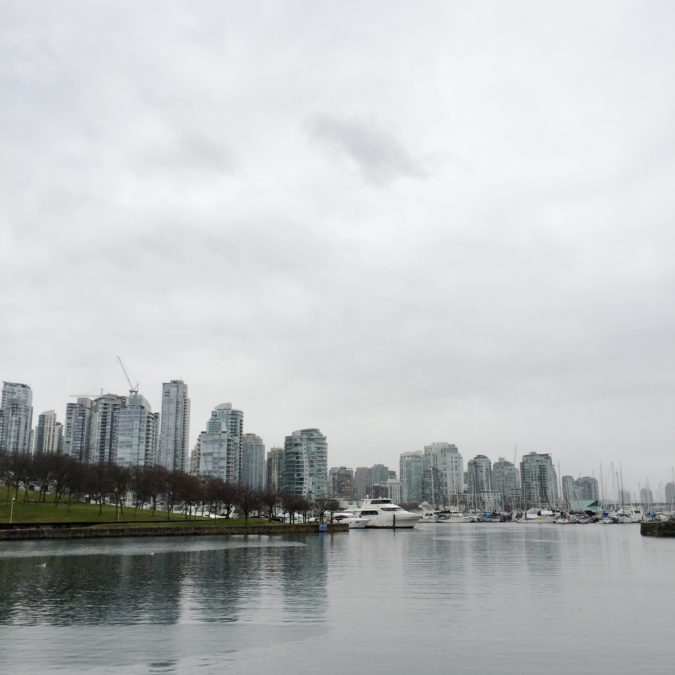Curators in Conversation: January 22, 2017
January 26, 2017

We asked Associate Curator Joyce Rosario and Club PuSh Curator-in-Residence Jordan Tannahill to to discuss their impressions of the first week of the 2017 PuSh Festival. They reflected on the works and the artists of Week 1. What emerged was a conversation about art situated in the global political context. This is a transcript of their conversation.
Joyce Rosario: This is Joyce and Jordan walking the seawall. It’s Sunday, rainy, big surprise.
Jordan Tannahill: Misty overcast. I don’t know what date it is, but it’s the first Sunday of the Festival. We’ve had two awesome shows back to back at Club Push—Dynasty Handbag and Bridget Moser’s Things a Person is Supposed to Wonder.
JR: We’ve had a bunch of Main Stage shows.
JT: Macbeth on opening night…
JR: By Heart, Oil Pressure Vibrator…
JT: Oh my God, yeah loved it, loved it. It’s been a good week.
JR: Mess, As I Lay Dying… I think that’s everything. I hope I haven’t missed anyone.
JT: Also some panels and talks. But yeah, one thing that we’ve been talking about, even before the festival began, is the rise of fascism in the world and the rise of Donald Trump as president of the United States of America and how when we were programming a lot of this work in the Festival, we were in a time when the prospect of Donald Trump as president was a kind of a distant possibility and probably not, I mean, not one that I gave a lot of credence to, perhaps at the time…
JR: Just to give a tiny bit of context, in terms of the timeline, the program guide was going to print in October. Then the program launched November, the beginning of November, the day before the American election.
JT: Yeah, November 8th. And so in the lead up to the election, and then during the election, I think we were talking at the time about how the work that we’ve programmed, basically the year before, would be received by an audience given the possibility of a Trump presidency. Not just Trump, but generally a climate of instability that has been engendered by his election. Also the rise of The Right in Europe, Brexit, etc. and now that we’re in it, we can’t ignore the context.
Dynasty’s show was the day of the inauguration and her act was so responsive and so coloured by the day. She just completely tackled it head-on and I think her performance had the right mixture of manic anger and disorientation that I think a lot of us were feeling and I actually thought of her like almost conducting this kind of ritual of healing, kind of communal healing for all of us. Healing through laughter, healing through a channeling of rage and perversity, queerness. That piece was charged in a completely different way, given the circumstances.
Bridget’s was as well, last night being in the evening of the women’s march and the way that she explores women’s bodies, as a locus for politics and materiality and for personal invention and discovery, really resonated in all kinds of different ways given the nature of the march and the politics of the day.
JR: I think also too, with By Heart. We were at a donor luncheon this afternoon and we all talked about what shows we had seen this week and more than a couple of people spoke about having seen By Heart the night of the inauguration, or the night after the Women’s March.
This is a piece that speaks about memory and resistance—the idea that if you memorize a poem and ten other people memorize a poem and those people teach ten other people to memorize a poem all of a sudden you’ve got a revolution. I think that resonated in a much different way than it would have, had the election gone another way.
JT: Yeah, I think moving forward over the next two weeks of the Festival, it’ll be really interesting to see and discover new resonances in the work in the program.
JR: Yeah, totally. I think that’s a good stop.